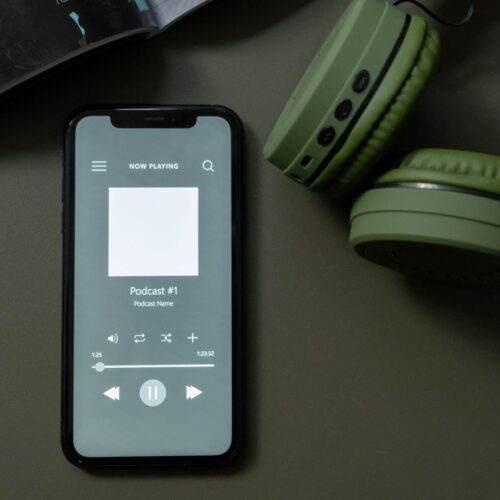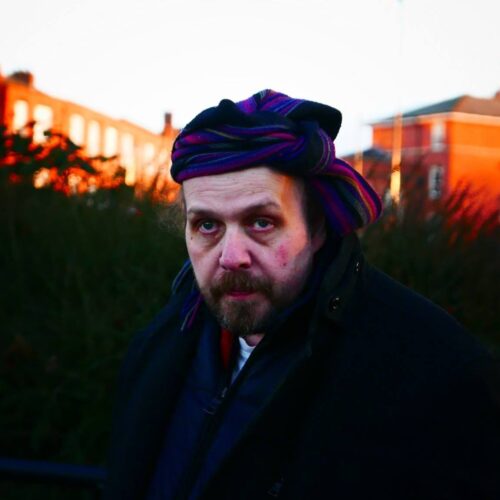
Writer’s Block (From the Perspective of a Composer)
I think writer’s block often occurs as a result of the following:
- The dislocation of attempting to create art in a society in which we are conditioned to think about how much money we can make from our artistic endeavours.
- Self-judgement, unhelpful self-criticism, self-editorialising.
I really don’t have the time or energy to endure writer’s block, and it is something I very rarely suffer from nowadays (although I used to encounter it regularly when I was younger).
Here are a few thoughts and strategies I find useful:
- Engage in a non-judgemental approach to creation; if you write a bad piece of music it doesn’t make you a bad musician or a bad person.
- Not everything you create needs to be great, and creating bad music can be liberating.
- You do not need to release/publish everything you create.
- Do not be afraid of writing the same piece again and again. (Well, not exactly the same piece, but if an idea worked in one piece, try it again, modify it, try it again, modify it, try it in a new context, try it on a new instrument, try it backwards, try it upside down).
- Do not be afraid to work quickly; a piece of music isn’t necessarily better if it takes a long time to write. (The ‘struggling artist’ archetype is pretty unhelpful).
- Do not be afraid to work slowly; a piece of music isn’t necessarily better if it takes little time to write. (The ‘musical genius’ archetype is also pretty unhelpful).
- Do not be afraid to be simple. Do not be afraid to be complex. Do not be afraid to be conventional. Do not be afraid to be unique.
- Do not be afraid to write nothing. One of my favourite composers, Hans Abrahamsen, wrote almost no music between 1990-1998. The pressure/expectations of living in the modern world make us think we need to be like a musical factory, continuously in production. This is not necessarily true. Sometimes we can make great strides in our own artistic development by doing nothing.
- Do not be afraid to write a lot. The following parable is from James Clear’s book Atomic Habits:
“On the first day of class, Jerry Uelsmann, a professor at the University of Florida, divided his film photography students into two groups. Everyone on the left side of the classroom, he explained, would be in the “quantity” group. They would be graded solely on the amount of work they produced. On the final day of class, he would tally the number of photos submitted by each student. One hundred photos would rate an A, ninety photos a B, eighty photos a C, and so on. Meanwhile, everyone on the right side of the room would be in the “quality” group. They would be graded only on the excellence of their work. They would only need to produce one photo during the semester, but to get an A, it had to be a nearly perfect image. At the end of the term, he was surprised to find that all the best photos were produced by the quantity group. During the semester, these students were busy taking photos, experimenting with composition and lighting, testing out various methods in the darkroom, and learning from their mistakes. In the process of creating hundreds of photos, they honed their skills. Meanwhile, the quality group sat around speculating about perfection. In the end, they had little to show for their efforts other than unverified theories and one mediocre photo.”
- Write 1 piece a year. Write 1,000 pieces a year. Neither makes you more or less of a composer.
- Question your methods of working, experiment to find what works for you, and be aware that this might change. Compose at the piano, compose on a beach, or on a train, in the morning, in the evening, in short bursts or long stretches.
- Play games, and ask “what if” questions:
- What if I write a piece that starts slow, gradually speeds up, and ends as fast as possible?
- What if I quickly write 10 melodies, pick my favourite and least favourite, and use both to create a new piece?
- The majority of the workload associated with writing a piece of music is in the ‘knowing’, and not the physical act of writing. Although writing with a pencil, using notation software, or using a DAW all take time, most of the work is happening in the brain. If you immediately knew exactly what you wanted to write (the overall structure of the piece, the harmonic language etc.), composition would be really quick! Consequently:
- Time spent away from the score/instrument/computer can still be considered composing. Going on a walk and thinking about the piece IS composition. If you’ve got a problem with an aspect of the piece (e.g. a particular chord sequence isn’t working) looking at the piece before bed and letting your dreams/subconscious solve the issue IS composition.
- A day where you have scribbled out bars, deleted notes, or removed instruments (i.e. a day where you feel like you have gone backwards, rather than forwards) IS progress. Since composing is about ‘knowing’, you have eliminated possibilities you did not want, you tested out ideas, you now know more about your piece, you are closer to knowing what the piece is, and therefore you have made progress.
- The creative process and the editorial process are completely different things. When you are creating things, encourage the editorial part of your brain to take a nap, so you can work fearlessly, with no inhibitions. Then, when it is time to edit what you have done, make amendments, and focus on the detail, wake the editorial part of your brain back up.
- This is not a two-stage process, however. You can create then edit then create then edit then create then edit…
- Value your music, value your time, value your talent, value your physical health, value your mental health.
- Finally, I acknowledge that composition can be tough; it cannot be enjoyable 100% of the time. However, our life on this planet is too short to waste too much of it engaged in an activity that causes us stress or unhappiness. If you ever find yourself perpetually hating composing, perhaps it is time to shake up your working habits and try something new. Music is beautiful, and making it should be fun (at least, some of the time!)
|
|







As a poet and Creative Writing tutor, I would endorse every word of this. I never thought about composers getting writer’s block but it obviously works the same way for both disciplines. Thankyou, Ben. And writers, please read and take note (pun intended!)
This is a great post Ben! I think the point that resonates the most is your original point #2 – self criticism (or perception of situation perhaps) preventing work from being created in the first place. It is easy to feel the pressure of having to write regardless of the reason whether that be money, situation, research etc. I cannot emphasise enough to any composer that composition should be a largely fulfilling and enjoyable experience, otherwise – why do it? My advice on top of this: be kind to yourself, remember why you love music and like to compose, cut yourself some slack; experiment, indulge and celebrate.
Thanks Ben, this post has arrived at a very good time for me. I’ve never had writer’s block before – until these last few months. I couldn’t understand what was happening, and the deadline is ticking for my level 3 dissertations. All the points you make are very valid, and although I have sort of broken the block , your advice will be so helpful in maintaining momentum now. I blamed lack of headspace – too much else going on to get down to composing, but that’s modern life. We need to find a way through it.
I wholeheartedly agree with every word of this. I am fairly prolific in my composition but have long periods of hiatus, the longest being 5 years following the passing of my Mother. It worried me somewhat that my gift had gone completely when my Mother had passed, but 5 years on my next composition was for my Mother, and my gift was miraculously restored. I think my brain just needed time to heal and process my loss. I do still get mental blacks, some lasting months. but then suddenly something will inspire me and phrases and passages start falling over themselves to be written, it seems to be all or nothing in my case, although I don’t beat myself up over it or stress like I used to as I realise this only hinders the creative flow even further. Take time to enjoy and savour the moment and let the music come to you naturally.